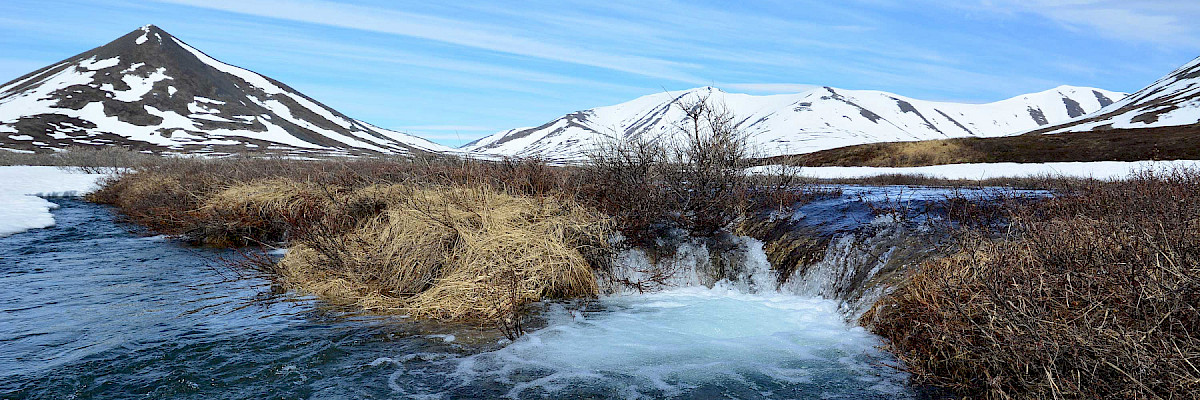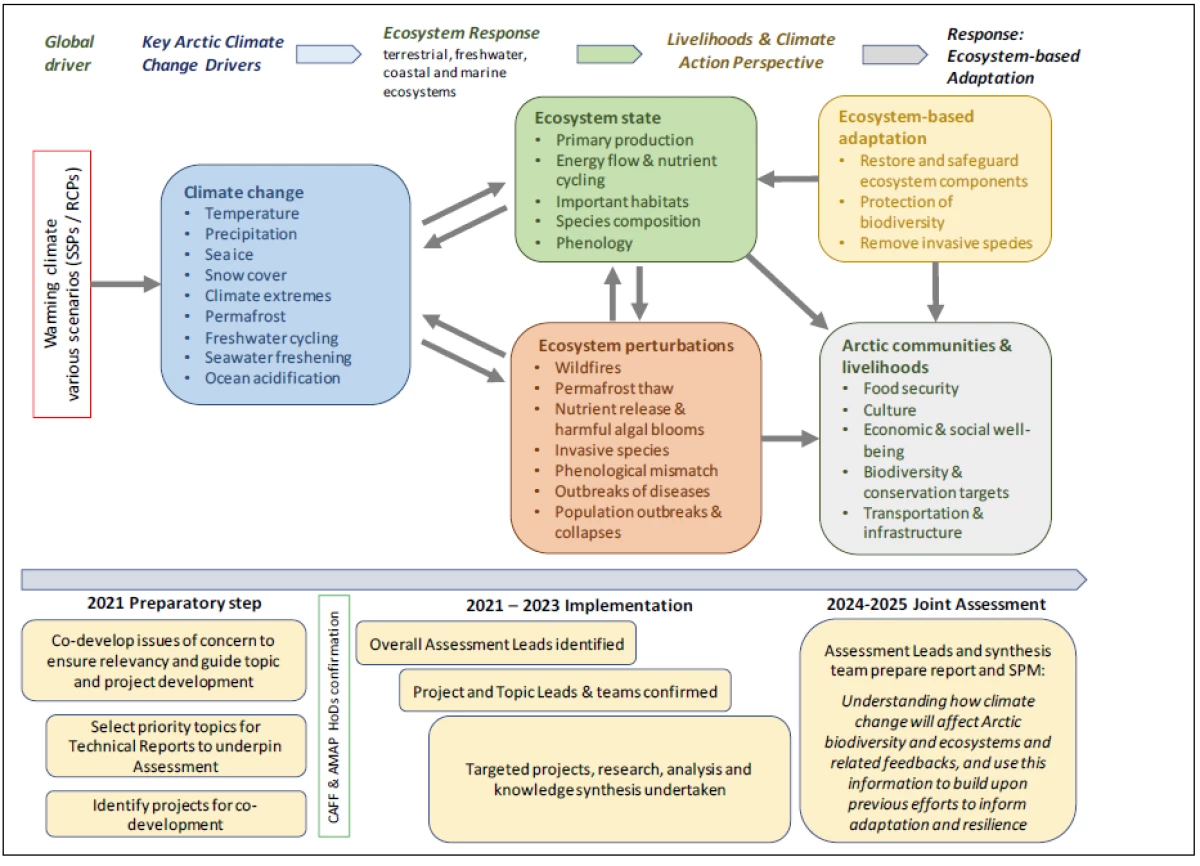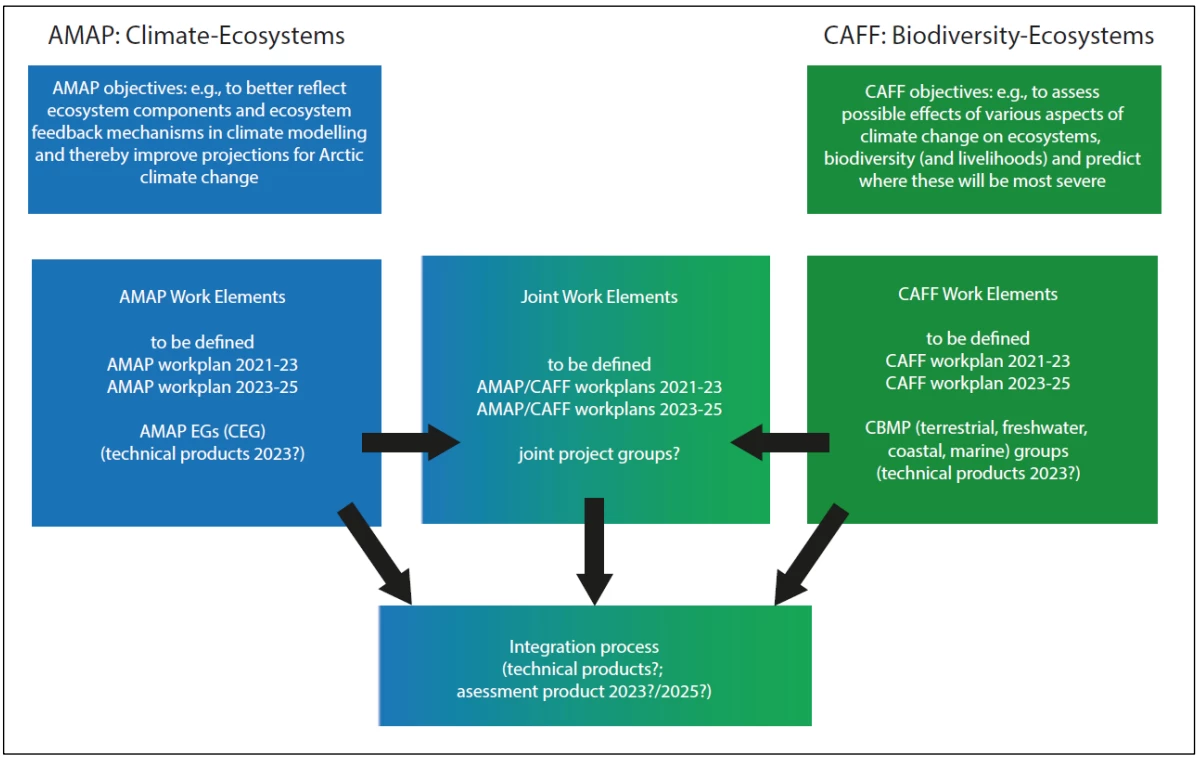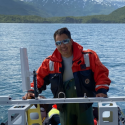
Climate change impacts on Arctic ecosystems and associated climate feedbacks
Assessing how climate change affects Arctic ecosystems and feedbacks to inform strategies for adaptation and resiliency.
CAFF and AMAP are jointly reviewing and assessing climate impacts on Arctic marine, freshwater and terrestrial ecosystems, and ecosystem feedbacks to climate. Understanding how climate change will affect ecosystems and ecosystem services is key to human livelihoods in the Arctic. From the policy perspective, an assessment of how climate change affects species and ecosystems upon which Arctic residents depend, particularly Indigenous Peoples, has been identified as a high priority in the Arctic Council.
AMAP and CAFF formed an advisory committee, organised a workshop and developed a draft scoping paper. Subsequently, a small project committee was established to advance the work. Figure 1 illustrates the organizational framework within which the scoping process was undertaken. The outcomes presented below focus on elements that the project committee consider feasible to implement in 2021-2023. These outcomes will be considered by AMAP and CAFF to provide the basis for decisions regarding activities to be included in their 2021-2023 work plans.

The joint work will encompass policy-relevant assessments of each element and linkage represented in the conceptual framework, covering Arctic marine, coastal, freshwater and terrestrial ecosystems. The proposed work will follow a stepwise approach to co-design and prepare a detailed workplan for the joint AMAP-CAFF climate-ecosystem work; implementation of the project and assessment work; and compile a joint AMAP/CAFF assessment.
The end-product will be responsive to the Arctic Council States’ and Permanent Participants (PPs) priorities regarding climate change, ecosystem resilience and conservation of biodiversity.

Experts
Lead Working Groups
AMAPCAFF
Lead Arctic States & Permanent Participants
Inuit Circumpolar CouncilNorway
Saami Council
The Kingdom of Denmark
 Arctic Council Working Group
Arctic Council Working Group 








